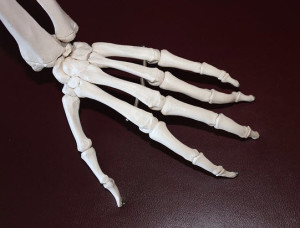 Many breast cancer treatments have the unfortunate side effect of causing decreased bone density, explains retired pharmacist and women’s healthcare entrepreneur Marla Ahlgrimm. In the following question-and-answer session, Ahlgrimm discusses the link between breast cancer and bone loss.
Many breast cancer treatments have the unfortunate side effect of causing decreased bone density, explains retired pharmacist and women’s healthcare entrepreneur Marla Ahlgrimm. In the following question-and-answer session, Ahlgrimm discusses the link between breast cancer and bone loss.
Q: What is the relationship between bone loss and breast cancer?
Marla Ahlgrimm: Chemotherapy, surgical removal of the ovaries, and some hormone therapies can impact estrogen levels. You may know that estrogen is important to female reproduction, but it is also the hormone that strengthens bones to reduce the risk of fractures. Less estrogen may put patients at a greater risk for osteoporosis.
Q: How are breast cancer and estrogen interconnected?
Marla Ahlgrimm: A number of breast cancer tumors are estrogen sensitive. This means these tumors flourish when estrogen is present. These estrogen receptor (ER) positive tumors respond to estrogen blocking therapy, which can slow the growth of tumors and help to prevent the return of cancerous cells.
Q: How is breast cancer typically treated?
Marla Ahlgrimm: There are a number of treatments for breast cancer. Treatment choice is based on differing factors that include whether the diseased cells have spread or remain contained in the breasts. Surgical methods remove cancerous tissue while chemotherapy and radiation attack cancer cells. Hormone therapy is used to fight ER positive breast cancer cells and may include aromatase inhibitors, selective estrogen receptor modulators, luteinizing-hormone releasing hormone, and estrogen receptor antagonists.
Q: Is it possible to prevent bone loss when being treated for breast cancer?
Marla Ahlgrimm: Women being treated for breast cancer with other risk factors, including smoking or alcohol abuse, run a higher risk of osteoporosis. And while some bone mineral density may not be preventable, doctors recommend taking any prescribed medications as directed and getting sufficient amounts of vitamin D to reduce the possibility of bone loss.









 If you google “weight loss,” you’ll find everything from sensible information to nonsensical and dangerous diet plans, says women’s healthcare expert
If you google “weight loss,” you’ll find everything from sensible information to nonsensical and dangerous diet plans, says women’s healthcare expert 





 Marla Ahlgrimm has co-authored two ground-breaking books,
Marla Ahlgrimm has co-authored two ground-breaking books,